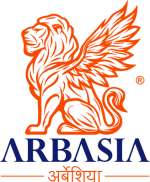By 12A registration trusts and NGO enjoy exemption from paying taxes. 80G registration provides benefit to the donor of an NGO.
80G Registration comes under section 80G of the Income Tax Act and provides benefit to the donor of an NGO whereas section 12A Registration will assist an NGO to get an organisation income exempted from tax.
You can apply for 12A and 80G online through professional tech based online legal services.
The various donations specified in section 80G are eligible for a deduction up to 100% or 50% without restrictions.
For the purpose of calculation of the amount that is available as a deduction from gross total amount, we can classify the deductions as: deductions without limit and deductions subject to limit.
The various donations specified in section 80G are eligible for a deduction of up to either 100% or 50% with or without restrictions.
Certain tax deductions can be claimed by submitting proof of donations to your employer and in some other cases donations can be claimed by the individual while filing tax return.



